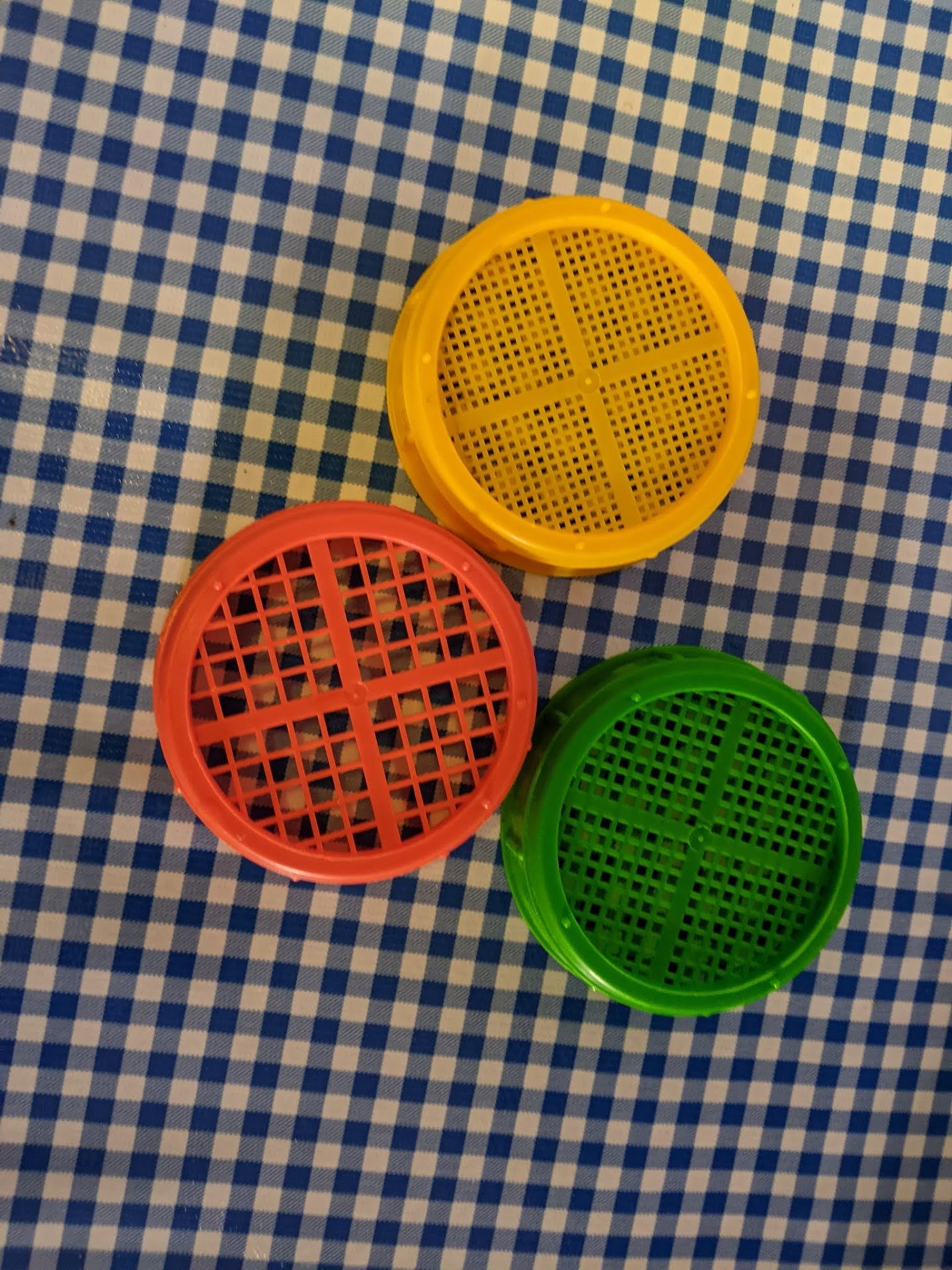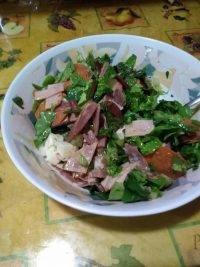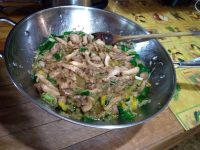
I love all the alliums, but some can be rather carby as the table below shows.
| net carbs | calories | |
|---|---|---|
| scallions | 4 | 35 |
| leeks | 11 | 55 |
| onions | 14 | 65 |
| shallots | 27 | 120 |
| garlic | 42 | 200 |
This explains why I grow scallions (bunching onions) in my garden, as they give me the most allium flavor bang for the carb/calorie buck.
I grow garlic too as that also gives a LOT of flavor for the *actual* serving size, which has never been *near* a whole cup!
I will occasionally buy red onions to use, though I use them sparingly. They have an awful lot of nutrients for the carbs, making them a decent choice when I really need onion, as opposed to alliums generally.
As we’re heading into December 2020, it’s nearly time to mulch the scallions and garlic for winter and thus time to move on to my favorite winter allium, onion sprouts.
Onion sprouts *rock* nutritionally, with only 3 g net carb and 30 calories per cup; in short, you can “count” them just like lettuce (which for me means no counting at all, just throw them on wherever I want). The flavor is most similar to scallions, but each sprout packs nearly an entire scallion worth of flavor.
Unlike most sprouts, onions sprouts are actually the shoot of the plant rather than the root, so they can grow green easily under a bit of light. Onion sprouts take longer to grow than most types of sprouts, up to 2 weeks, but they make up for it by being much yummier than all the rest.
I sprout in wide-mouth mason jars. Last winter, I made quart-size batches a couple times, but this time, I’m making pints. Though they lasted over a month stored in the fridge last year, I did have some go slimy towards the end, so am doing smaller batches this year.
How to Make Onion Sprouts
- You need a sprouting setup. I find the simplest and cheapest setup to be sprouting lids made for wide-mouth mason jars.
- Put 2 TB onion seeds in a pint jar or 4 TB in a quart. Fill with water and let soak overnight, anywhere from 8-20 hours or so.
- Strain seeds and recover with water to rinse. Drain again and place jar tilted to the side in a container (I use a Pyrex cup) to catch draining water and ensure air flow.
- Continue to rinse, setting to drain afterwards, two or three times daily.
- When the sprouts are around an inch long (usually after a couple weeks), do a last rinse and let drain very well for at least 12 hours. Then cover jar with a piece of plastic wrap and refrigerate.
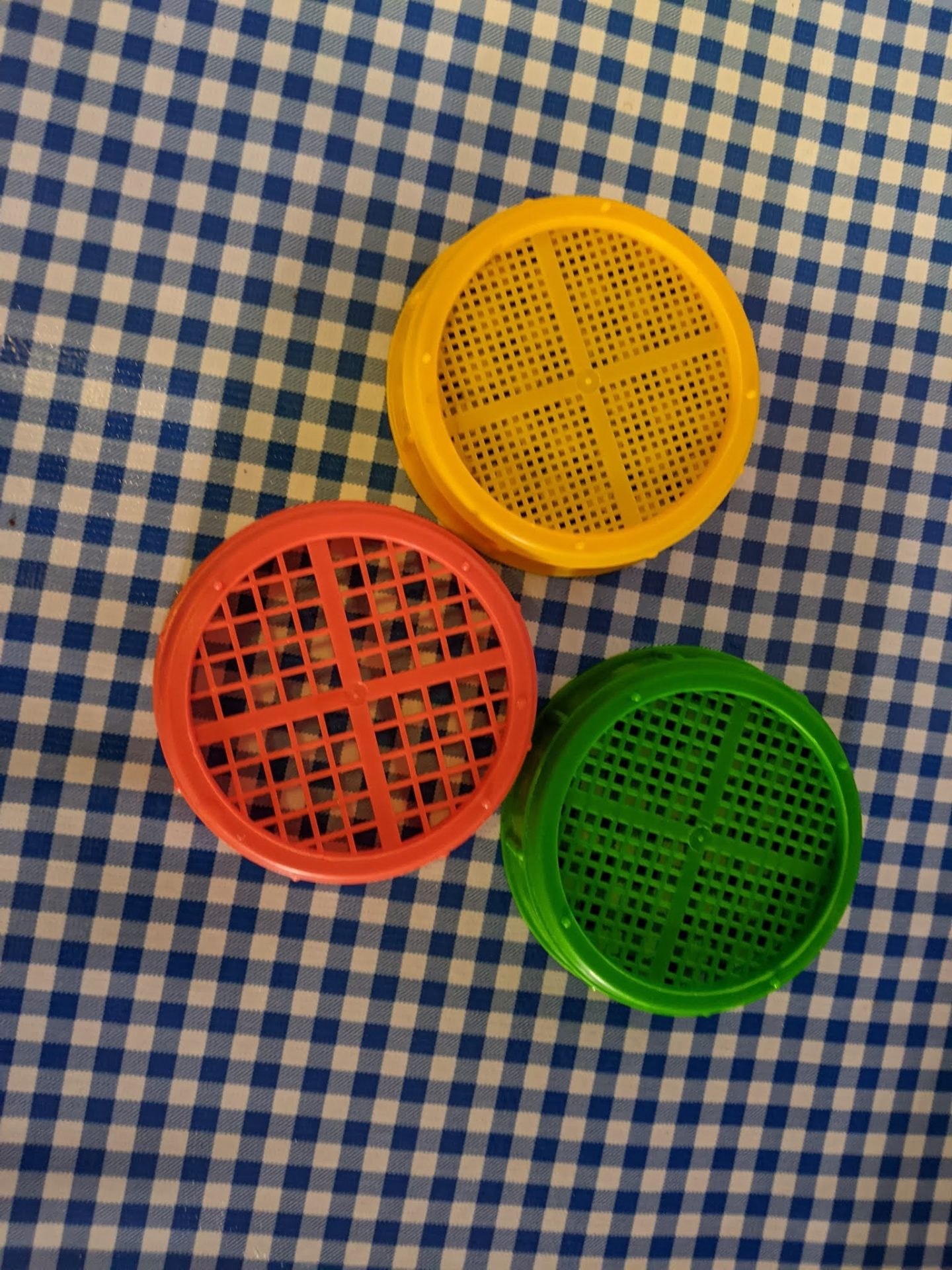 Sprouting lids are available very cheaply from Amazon (affiliate) as are 4-packs of wide-mouth jars in pint-size or quart size.
Sprouting lids are available very cheaply from Amazon (affiliate) as are 4-packs of wide-mouth jars in pint-size or quart size.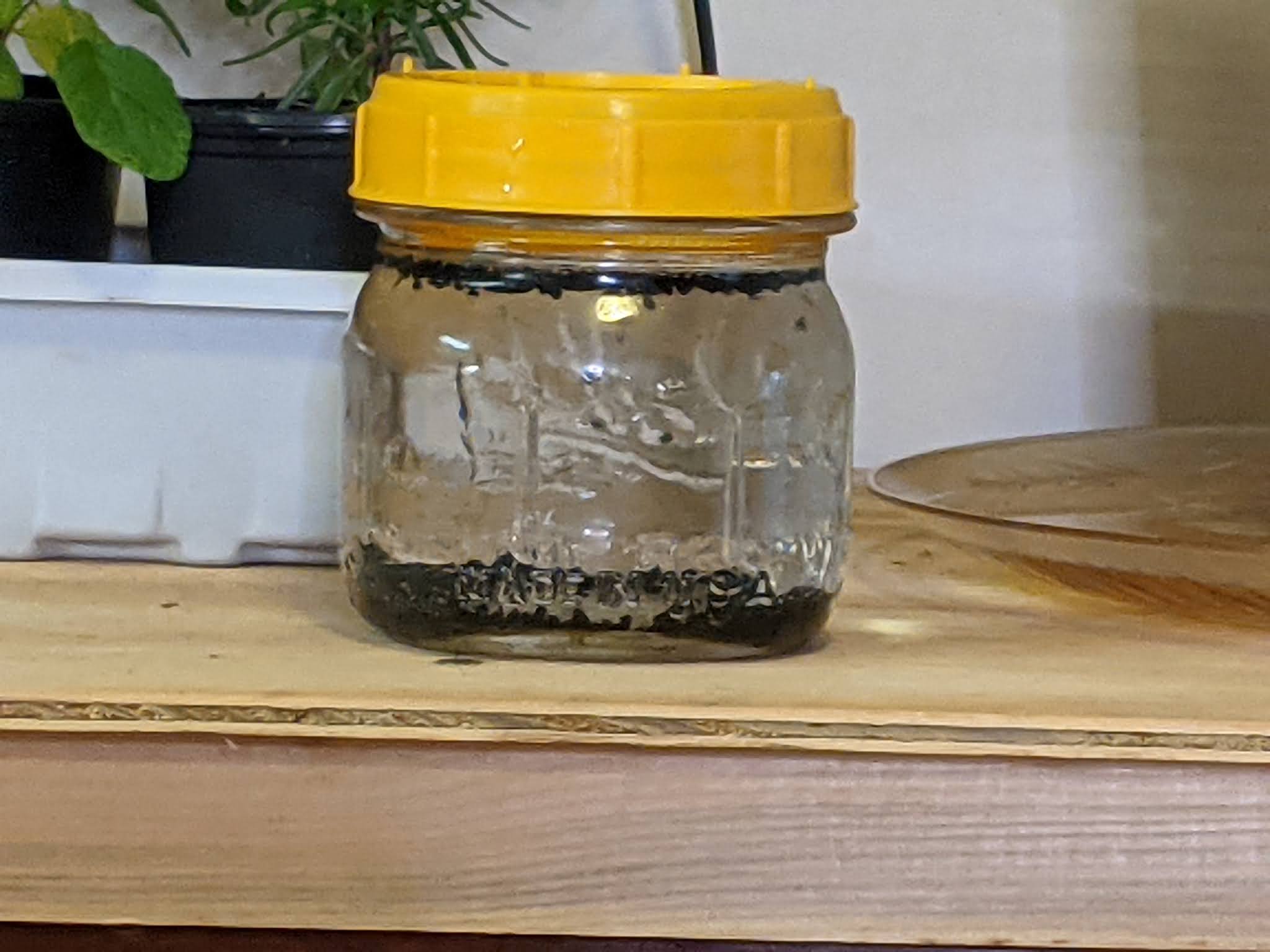 Onion seeds don’t last well from year-to-year, so I usually just buy a half pound or so onion seeds from Amazon.
Onion seeds don’t last well from year-to-year, so I usually just buy a half pound or so onion seeds from Amazon. 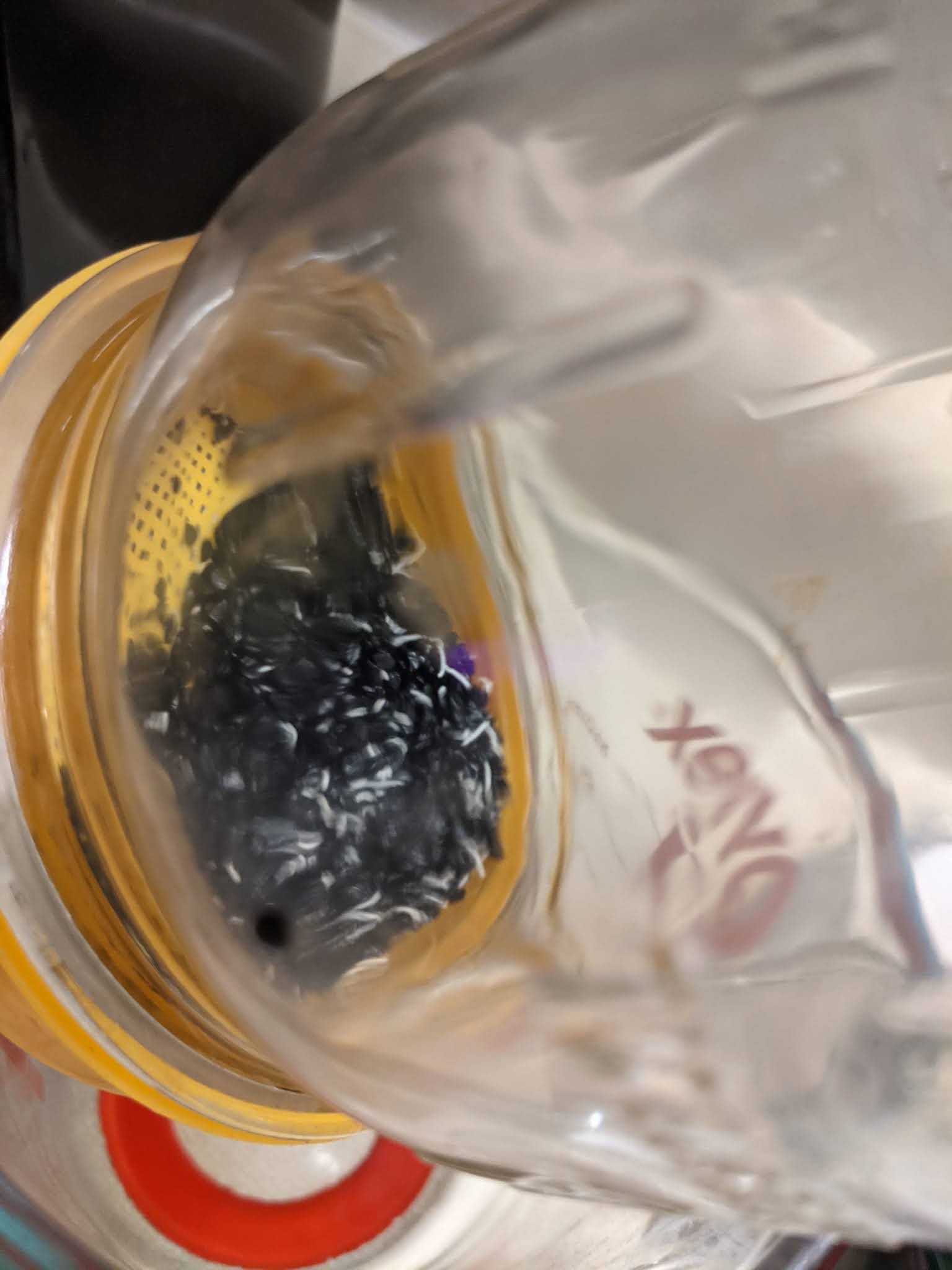 This is what they look like on day 4 as baby sprouts.
This is what they look like on day 4 as baby sprouts.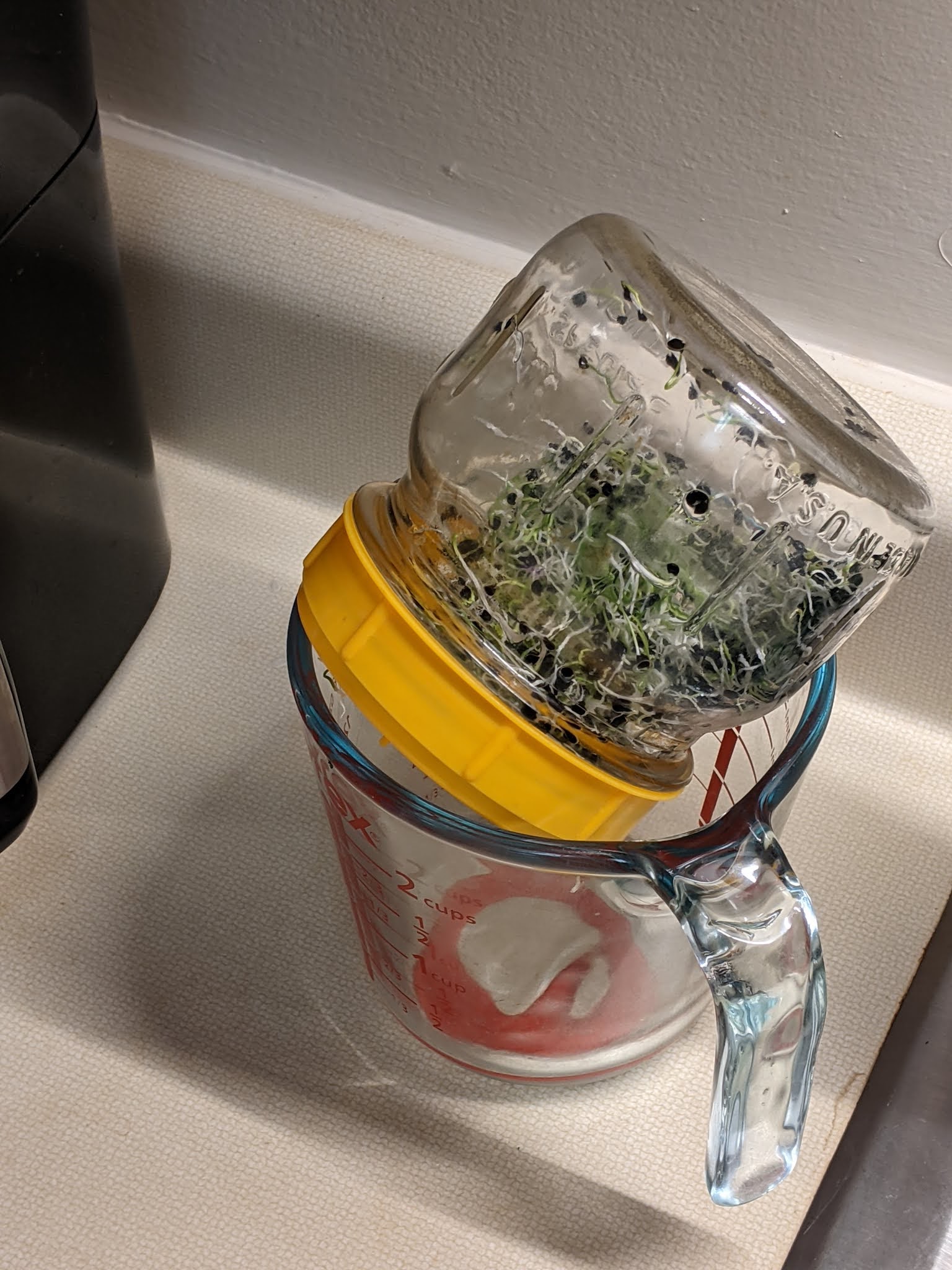 This is what they look like on day 9 as… teenagers?
This is what they look like on day 9 as… teenagers?
